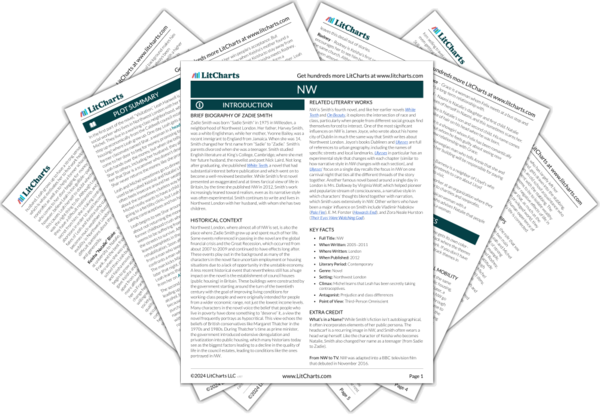“Hysterical” is often a gendered insult that applies more often to women than men. It’s also an interesting word for Zadie Smith, whose first novel,
White Teeth, received generally positive reviews but criticized by one famous critic for being “hysterical realism.” In spite of its shifting, experimental style,
NW is generally closer to more traditional realism than the heightened version of reality in some of Smith’s other works.
